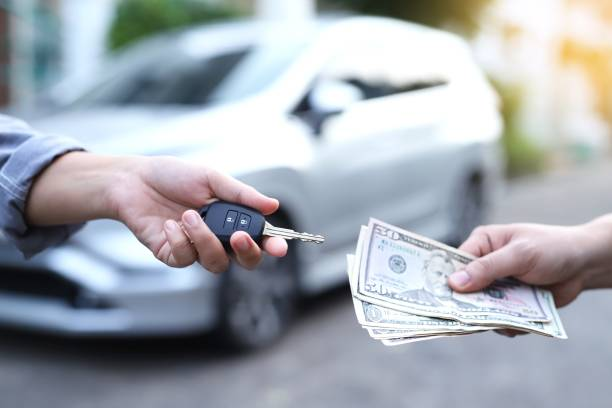What’s a lemon car and why is it called as such? Imagine this: You’re thinking about purchasing a car with your hard-earned money. Excited about your new car purchase, you drove your brand new ABC Sports Utility Vehicle off the showroom floor. Little did you know, you were about to enter a frustrating journey.
Within weeks, the SUV started experiencing electrical malfunctions. The dashboard lights flickered erratically, and the power steering would occasionally fail. You returned to the dealership for repairs, but the problems persisted.
Over the next six months, the SUV became a frequent visitor at the dealership workshop. Each time, the dealership “fixed” the issue, only for it to reappear shortly after. You documented everything – service records, emails with the dealership, and even video recordings of the malfunctions.
This is what a lemon car does.
What’s a Lemon Car?
A lemon car is a vehicle that is found to have persistent defects only after its purchase. This is any automobile that has multiple serious defects that keep happening even after repairs have been made.
The word can also refer to any product that has defects that are too severe or too great for it to function as intended. However, Australia does not have a definitive ‘lemon law’ unlike other countries.
Nevertheless, Australia has the Australian Consumer Law (ACL) that protects buyers of both new and used motor vehicles. Furthermore, New South Wales (NSW) Fair Trading works to ensure that the market is fair for all parties involved by:
- protecting your rights,
- empowering merchants and consumers,
- providing timely and pertinent education programmes, and
- establishing direct connections with local communities to increase understanding of fair trading problems.
In relation to lemon laws, NSW Fair Trading provides for a free dispute resolution service to assist in resolving disputes you may have with authorised auto dealers or repairers. We’ll talk more about this later. Even Consumer Affairs Victoria (CAV) takes breaches of motor car trading laws very seriously and will investigate and take action regarding new and used vehicles.
The Australian Consumer Law
As mentioned earlier, the ACL is sort of a backup of your car’s warranty. Don’t worry if a problem appears after your car’s warranty has expired; the Australian Consumer Law may still allow you to receive free repairs or even a replacement.
A manufacturer’s warranty is a voluntary commitment from an automobile manufacturer to repair or replace specific damaged parts of your car at no cost to you over a predetermined time and distance when you buy a new car in Australia.
In Australia, standard manufacturer warranties usually offer coverage ranging from three to seven years, or from 100,000 to an unlimited number of kilometers. Additionally, customers have the option to purchase an extended warranty in order to extend the coverage duration.
Fortunately, the Australian Consumer Law, which provides specific guarantees that the goods you’ve purchased will function and fulfill your requests, also covers the purchase of your car.
The Australian Competition and Consumer Commission (ACCC) states that “manufacturers and dealers must honour your consumer guarantee rights regardless of any commercial warranties they give you or sell you.”
Your new vehicle must “be of acceptable quality (safe, durable, and free from defects); be fit for any purpose disclosed before the sale; match the provided description or demo model; and have spare parts and repair facilities available” in order to qualify for consumer guarantee rights.
Your consumer guarantee rights are also subject to exclusions. For instance, you won’t be covered if an issue results from “abnormal consumer use”. These consumer rights are also protected against being “replaced, limited or removed by any agreement, contract or warranty” and from being “made subject to non-disclosure conditions” under Australian law.
This implies that regardless of whether you service or repair your vehicle through a brand’s dealer network, you are entitled to these rights.

Your Rights Under the ACL and NSW Fair Trading
First, let’s talk about consumer’s rights under the ACL. The ACL protects its consumers in the following areas:
- unfair contract terms, covering standard form consumer contracts
- consumer rights when buying goods and services
- product safety
- unsolicited consumer agreements covering door-to-door sales and telephone sales
- lay-by agreements
The ACL has a guide on consumer guarantees which discusses which products and services are covered by guarantees, who is liable for them, and when a remedy—like a refund, repair, or replacement—may be offered.
Second, let’s discuss the specific consumer guarantees under NSW Fair Trading. These guarantees are also based on ACL’s guide. Here, the products of suppliers must be of acceptable quality. This means that the product is:
- safe, lasting, with no faults
- appears acceptable
- functions normally, as expected of its kind.
Moreover, all businesses, no matter what additional warranties they provide or sell you, are required to issue these automatic assurances. If there’s failure to meet these guarantees, you are entitled for the following:
- a repair, replacement or refund
- cancel a service
- reimbursement for damages and loss.
However, these entitlements are not absolute. You can’t avail of consumer guarantees if you:
- misused a product which caused the problem
- changed your mind or saw it cheaper elsewhere
- informed about the faults before you bought the product
- bought a one-off item from a private seller
- make plans to modify or upsell the product so you can sell more of it in the future.
Resolving Lemon Car Disputes
Dispute resolution by NSW Fair Trading seeks to settle disputes before they reach a panel or court. The service is provided voluntarily. It involves the authorised motor dealer or repairer as well as the owner of the motor vehicle. Fair Trading will make an effort to settle the disagreement in person, over the phone, or in writing.
To begin resolving an issue, you must first understand your legal rights under Australian Consumer Law. Moreover, the owner of the car and a certified auto dealer or repairer must attempt to handle the problem independently. This will avoid a drawn-out and expensive court trip, saving both parties time and money.
Here are 5 simple steps in resolving lemon car disputes before the NSW Fair Trading:
- Schedule a discussion.
- Prepare the necessary documents (e.g. invoices, private sales receipts, contracts, etc.)
- Negotiate a settlement.
- Contact NSW Fair Trading.
- Lodge a complaint.
Once you lodged your complaint, Fair Trading will assess it and determine the issues, if there’s a breach of the law, or if another organisation should handle the issue. To know more about dispute resolution before NSW Fair Trading, you may check their website.

Talk To A Lawyer from JB Solicitors
If you’re looking to understand more about the Australian Consumer Law in relation to lemon cars, our lawyers at JB Solicitors can explain your rights clearly and determine if your situation qualifies as a major failure under the ACL.
We can help you gather and organise evidence to support your lemon car claim. This may include service records, communication with the dealer, and potentially expert evaluations to prove the car’s problems.
Schedule a consultation today.
